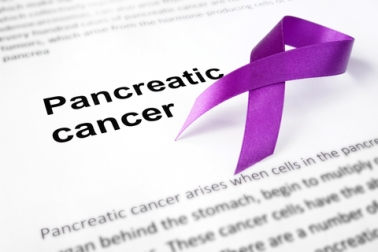Here’s some info in honor of National Pancreatic Cancer Awareness Month.
Pancreatic cancer is one of the hardest to treat. However, three independent studies suggest a way.

Researchers are conducting clinical trials that use two drugs in tandem to thwart a mutated gene KRAS, that drives tumor growth in 95% of patients with pancreatic cancer.
KRAS is one of the most elusive targets in cancer research. This is because the KRAS protein lacks places where a small-molecule drug can bind and impair its function.
Mutant KRAS produce continuous growth signals, passed from one protein to the next, that results in a chain reaction called a signaling pathway. Over six of these pathways stem from KRAS. If one is impaired, the others can pick up the slack.
Researchers found that by eliminating the autophagy pathway that provides energy for the cancer cells at the same time that another drug indirectly targets KRAS, they can shrink pancreatic cancer tumors in mice. This is huge because the KRAS gene is mutated in 30% of all cancers, including some types of colorectal and lung cancer.
One clinical trial to explore this treatment is already enrolling participants. A second is expected to launch in the near future.
For more information, see National Cancer Institute http://www.NationalCancerInstitute.org




